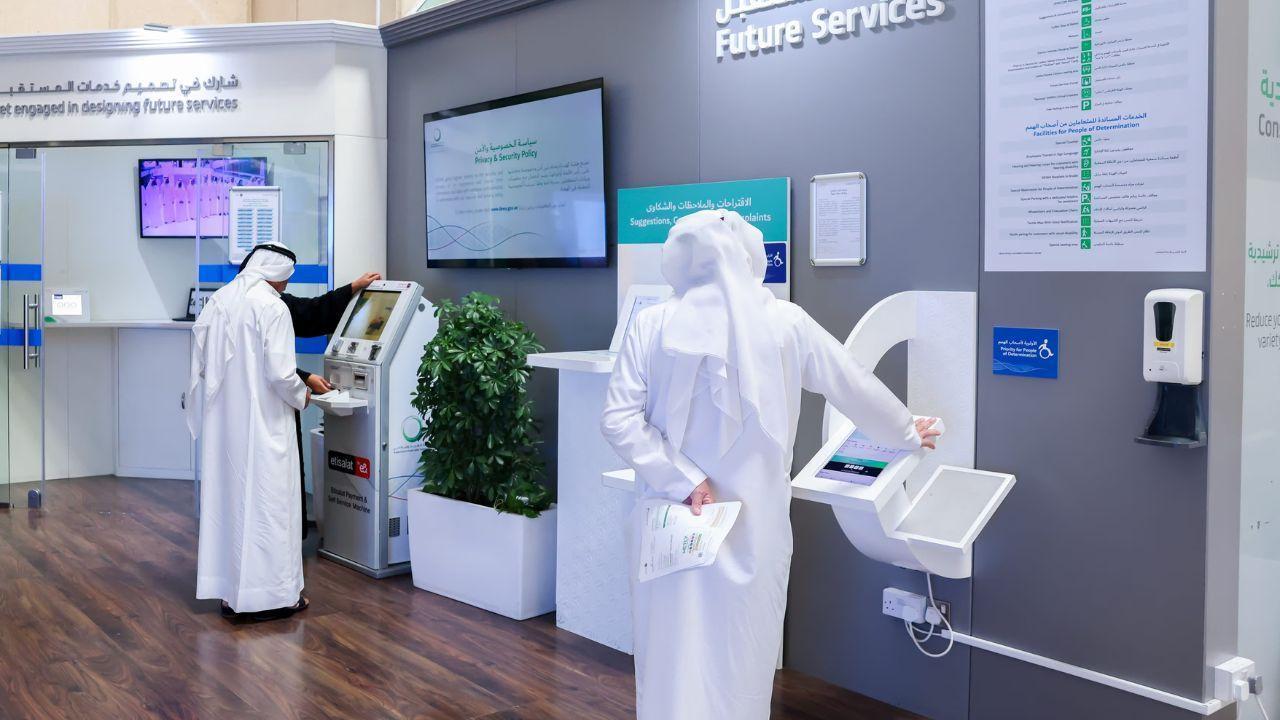
Post by: Luxmi Verma
The Importance of Education Transformation in a Digital World
One of the most crucial pillars of society is education. It develops young people's minds, gives them the tools they need to succeed, and prepares them for the future. There has been an increasing push in recent years to reconsider the way that education is provided. It is imperative that we consider changing education for the upcoming generation in order to make it more effective, inclusive, and relevant given how quickly the world is changing. This article will explore how this change can be made and why it is so crucial for the future of children everywhere.
The Need for Change in Education
The education system has largely remained the same for many years. Traditional classrooms with desks in rows, chalkboards, and textbooks are still common in many parts of the world. While this model worked well in the past, it may no longer meet the needs of today’s fast-paced, technology-driven world. As technology continues to advance, students need more than just facts; they need to learn how to think critically, solve problems, and adapt to new challenges.
This is where transforming education for the next generation becomes essential. We need to create an education system that equips students with the skills they need to succeed in the future. This means embracing new teaching methods, integrating technology, and encouraging creativity. It also means focusing on holistic development, which includes not only academic success but also emotional and social growth.
Technology in Education
One of the key factors in transforming education is the use of technology. Technology has already changed nearly every aspect of our daily lives, and education is no exception. Digital tools such as tablets, laptops, and online platforms have the potential to make learning more engaging and accessible. With the right tools, teachers can provide personalized learning experiences, adapt lessons to suit different learning styles, and track students’ progress in real time.
For example, using online platforms allows students to learn at their own pace. They can access lessons, watch videos, and complete assignments on their own schedule, which makes learning more flexible. Additionally, virtual classrooms have made it possible for students from different parts of the world to connect and collaborate, breaking down geographical barriers.
Furthermore, subjects like coding, digital literacy, and data science are becoming essential for students in today’s world. Integrating these subjects into the curriculum will give students the skills they need to navigate an increasingly digital world.
Inclusive Education
Another important aspect of transforming education for the next generation is making education more inclusive. In the past, many educational systems focused on one-size-fits-all models, which did not account for the diverse needs of students. Today, there is a greater emphasis on creating an inclusive environment where every student, regardless of their background or abilities, has the opportunity to succeed.
Inclusive education means recognizing that students have different learning styles, abilities, and interests. By adopting differentiated instruction methods, teachers can cater to the unique needs of each student. This could involve using visual aids, hands-on activities, or group work to ensure that every student can engage with the material in a way that suits them.
Additionally, there is a growing awareness of the importance of mental health in education. Ensuring that students feel safe, supported, and valued is just as important as academic achievement. Programs that promote social-emotional learning (SEL) can help students develop the skills they need to manage their emotions, build healthy relationships, and overcome challenges.
Critical Thinking and Problem-Solving
As the world faces increasingly complex problems, it is more important than ever for students to develop strong critical thinking and problem-solving skills. Instead of simply memorizing facts, students should be encouraged to ask questions, explore different perspectives, and find creative solutions to problems. This is where hands-on learning, project-based learning, and inquiry-based approaches come into play.
For example, in a project-based classroom, students might work on real-world problems, such as designing a sustainable city or developing a solution to a global issue. They are encouraged to collaborate with others, think critically, and apply what they have learned to real-world scenarios through this type of learning.
Encouraging critical thinking also means challenging students to think independently and form their own opinions. Instead of relying solely on textbooks, students should be encouraged to explore different sources of information, debate ideas, and engage in discussions that help them see the world from different viewpoints.
The Role of Teachers in the Transformation
While technology, inclusivity, and critical thinking are all important components of transforming education, teachers remain at the heart of the process. Teachers are the ones who inspire students, provide guidance, and foster a love of learning. As education evolves, teachers must adapt to new methods, tools, and ideas. This requires ongoing professional development, support, and a commitment to lifelong learning.
In the future, teachers will not only be facilitators of knowledge but also mentors and coaches who help students navigate their personal and academic journeys. Teachers will need to focus on building strong relationships with students, understanding their individual needs, and providing them with the skills and confidence to succeed.
Preparing for the Future
Transforming education for the next generation is not just about incorporating new technology or teaching methods; it’s about preparing students for the challenges they will face in the future. As we move into an era of rapid technological advancement, environmental challenges, and global interconnectedness, the education system must evolve to ensure that students are ready to thrive in an ever-changing world.
This means focusing on skills like creativity, adaptability, collaboration, and digital literacy. It also means embracing new ways of teaching that empower students to take charge of their own learning. By creating a flexible, inclusive, and forward-thinking education system, we can ensure that the next generation is equipped to face the challenges and opportunities of tomorrow.
Summary:
The article discusses the importance of transforming education for the next generation to meet the demands of a rapidly changing world. It highlights key areas for transformation, such as embracing technology, promoting inclusive education, and fostering critical thinking and problem-solving skills. The article also emphasizes the critical role teachers play in this transformation and stresses the need for continuous professional development. By evolving the education system to be more flexible, inclusive, and forward-thinking, we can better prepare students for future challenges and opportunities.
Disclaimer:
This article is intended for general informational purposes only. The views expressed do not necessarily reflect the official stance of DXB News Network. Readers are encouraged to seek professional advice or consult experts regarding educational matters. The content provided is based on widely accepted educational principles and may vary in different regions and contexts. Always ensure you follow the most current guidelines and standards in education.
#trending #latest #TransformingEducation #FutureOfEducation #InclusiveEducation #CriticalThinking #TechnologyInEducation #EducationForTheNextGeneration #InnovativeTeaching #EducationalReform #TeachersRole #HolisticLearning #ProjectBasedLearning #GlobalEducation #LifelongLearning #DigitalLiteracy #LearningForTheFuture #breakingnews #worldnews #headlines #topstories #globalUpdate #dxbnewsnetwork #dxbnews #dxbdnn #dxbnewsnetworkdnn #bestnewschanneldubai #bestnewschannelUAE #bestnewschannelabudhabi #bestnewschannelajman #bestnewschannelofdubai #popularnewschanneldubai

Smart Saving and Investment Tips for Your 20s and 30s...Read More.

How to Prepare Today’s Students for Tomorrow’s Job Market...Read More.














Death Toll Rises in Myanmar, Bangkok Collapse; Rescue Ops Ongoing
The death toll from Myanmar's 7.7-magnitude earthquake rises to 1,644. Bangkok building collapse kil

Daria Kasatkina Switches to Australian Flag in Tennis Career
Daria Kasatkina, world No. 12, announces she's switching to represent Australia in tennis after gain

Salman Khan’s Sikandar Shines on Ain Dubai Before Release
Dubai lit up Ain Dubai with Sikandar visuals ahead of its release! Salman Khan’s Eid action blockbus

Small Plane Crashes into House in Minneapolis Suburb
A small plane from Iowa to Minnesota crashed into a house near Brooklyn Park. No survivors on board;

Partial Solar Eclipse to Be Visible Across Northern Hemisphere
A partial solar eclipse will be visible on Saturday from Canada to Siberia, with the best views in n